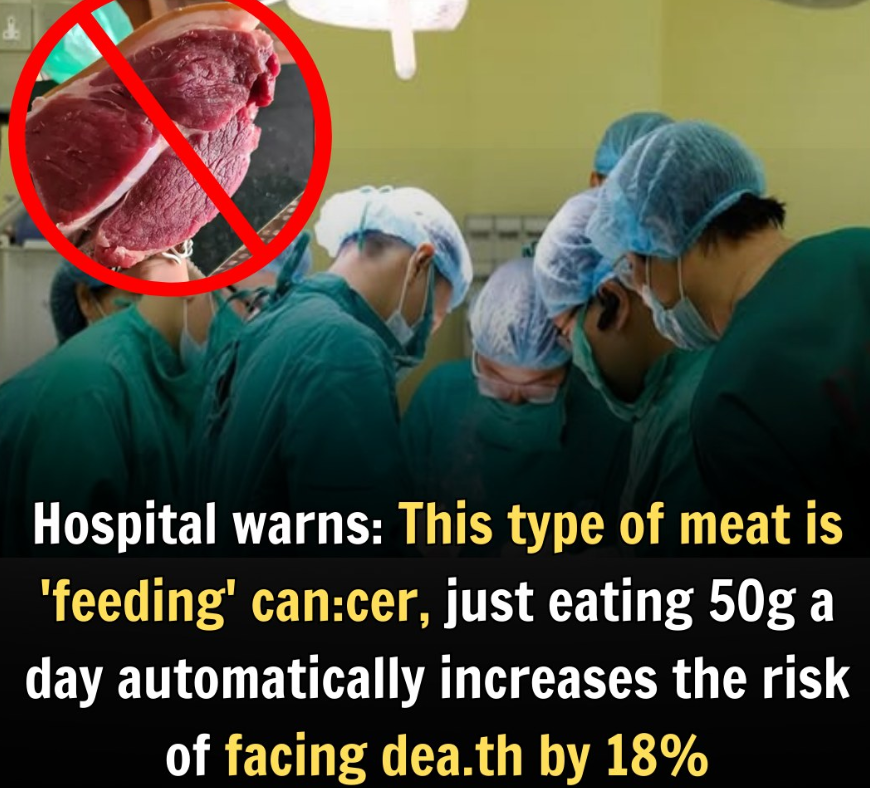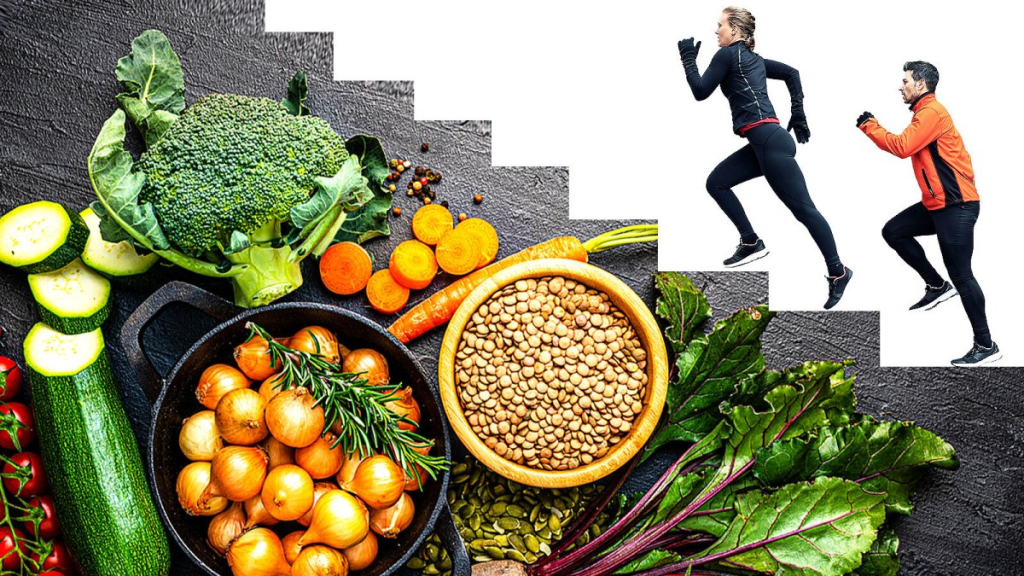Cancer remains one of the leading causes of death worldwide, and diet plays a significant role in either reducing or increasing the risk of developing this disease. A growing body of research has linked red meat and processed meat to an increased risk of several types of cancer, including colorectal, esophageal, lung, pancreatic, endometrial, and stomach cancer.
Doctors at K Hospital and experts from the World Cancer Research Fund (WCRF) have emphasized the dangers of consuming large amounts of these meats. According to their findings, processed and red meat not only increase the likelihood of developing cancer but also contribute to other serious health risks.
The Link Between Red Meat, Processed Meat, and Cancer

For years, scientists have been investigating the connection between meat consumption and cancer risk. Several large-scale studies, including the European Prospective Investigation into Cancer and Nutrition (EPIC) cohort, have identified a clear correlation.
- Every 50g increase in daily processed meat consumption raises the risk of cancer by 18%.
- Every 100g increase in daily red meat consumption raises the risk by 17%.
These numbers highlight a significant increase in cancer risk, especially for colorectal cancer, which is one of the most common and deadly cancers worldwide.
Why Processed Meat is So Dangerous
Processed meat includes bacon, ham, sausages, hot dogs, salami, beef jerky, canned meat, and deli meats. These products undergo curing, smoking, or chemical preservation, which introduces harmful compounds into the body.
1. The Role of Nitrites and Nitrates
One of the primary concerns with processed meats is the use of nitrites and nitrates as preservatives. These substances help extend shelf life and enhance flavor, but they also lead to the formation of nitrosamines—a class of compounds strongly linked to cancer.
- Nitrosamines damage DNA and proteins, increasing the risk of cancer development.
- The EPIC-Norfolk study found that high nitrosodimethylamine intake increased the risk of gastrointestinal cancer by 1.13 times, with colorectal cancer risk rising by 1.46 times.
2. High Salt Content and Stomach Cancer Risk
Processed meats often contain excessive amounts of sodium, which can lead to:
- Gastric mucosal damage (damage to the stomach lining).
- Endogenous nitroso compound formation, which contributes to cancer development.
- Higher Helicobacter pylori infection rates, a bacteria known to cause stomach ulcers and increase cancer risk.
A diet high in salted meats and preserved foods has been shown to increase stomach cancer risk significantly.
The Dangers of Red Meat and Cancer Development

While unprocessed red meat may seem like a healthier alternative, it still poses cancer risks, particularly when consumed in large quantities.
1. Haem Iron and Oxidative Stress
Red meat is high in haem iron, which, in excess, can:
- Lead to oxidative stress, causing DNA and protein damage.
- Increase lipid peroxidation, which promotes the formation of carcinogenic compounds in the body.
Studies indicate that haem iron in red meat also increases endogenous β-nitroso compound formation, further elevating gastric cancer risk.
2. Harmful Cooking Methods: Heterocyclic Amines and Polycyclic Aromatic Hydrocarbons
How meat is cooked also affects its carcinogenic potential. Cooking red meat at high temperatures (grilling, frying, roasting, or barbecuing) produces harmful chemical compounds such as:
- Heterocyclic aromatic amines (HAAs)
- Polycyclic aromatic hydrocarbons (PAHs)
Both HAAs and PAHs have been linked to:
- Colorectal adenomatous polyps (precursors to colorectal cancer).
- An increased risk of colorectal and pancreatic cancer.
For this reason, experts recommend avoiding charred or overcooked meat and opting for gentler cooking methods like boiling or steaming.
The World Cancer Research Fund’s Recommendations

To reduce cancer risk, the World Cancer Research Fund (WCRF) and other global health organizations have issued dietary guidelines:
- Limit red meat consumption to less than 500g per week.
- Avoid processed meat altogether or consume it sparingly.
- Choose plant-based proteins like beans, lentils, tofu, nuts, and seeds as healthier alternatives.
Healthier Alternatives to Reduce Cancer Risk
While reducing red and processed meat intake is crucial, adopting a balanced, plant-rich diet can further lower cancer risk. Some of the best foods for cancer prevention include:
1. Fresh Fruits and Vegetables
Rich in antioxidants, vitamins, and fiber, plant-based foods help combat inflammation and oxidative stress.
2. Whole Grains and Legumes

Brown rice, quinoa, lentils, and beans provide fiber, which supports gut health and reduces colorectal cancer risk.
3. Fatty Fish and Lean Proteins
Salmon, sardines, and mackerel are high in omega-3 fatty acids, which have been shown to reduce inflammation and protect against various diseases.
4. Nuts and Seeds
Flaxseeds, walnuts, and chia seeds contain healthy fats and antioxidants that support overall well-being.
Conclusion: A Call for Smarter Eating Habits

The link between processed and red meat consumption and cancer risk is well-documented, making it essential for individuals to rethink their dietary choices. While occasional consumption may not be harmful, regularly eating processed meats and excessive red meat significantly increases the likelihood of developing colorectal, stomach, and other types of cancer.
By limiting red meat intake, avoiding processed meats, and incorporating more plant-based foods, individuals can take a proactive approach to cancer prevention and overall health.
Small dietary changes today could lead to a healthier and longer life tomorrow. The power to reduce cancer risk starts with what we put on our plates.


